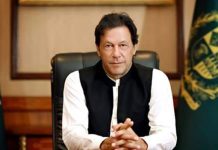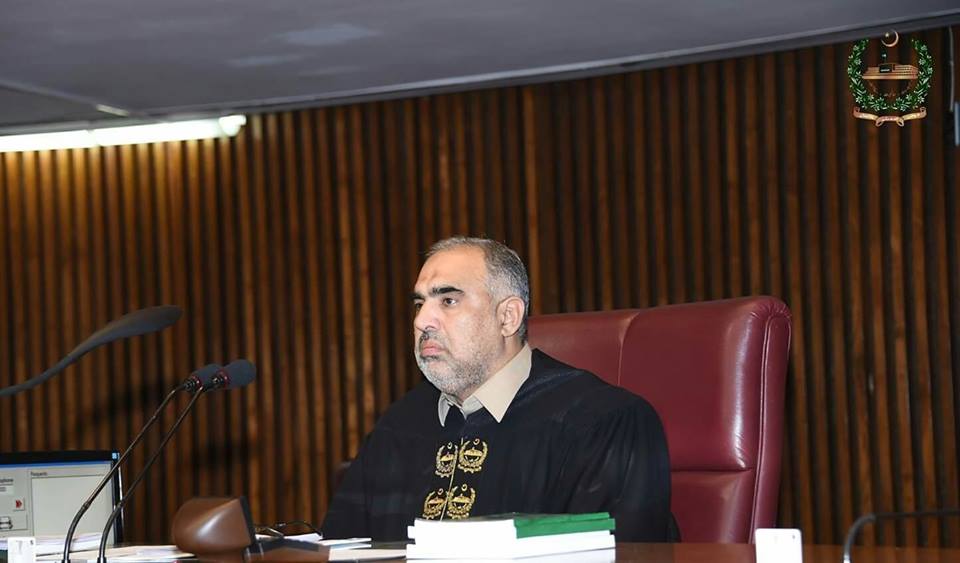مضمون کا ماخذ : نتیجہ میگا سینا
Well-educated people refusing polio bemuses officials
ISLAMABAD: It was observed during recent polio campaign that a large number of educated people did not want to vaccinate their children held in the capital. Additional Deputy Commissioner (ADC) Abdul Sattar Isani said that the situation is unfortunate and all possible steps would be taken to ensure that every child is administered the polio […]
ISLAMABAD: It was observed during recent polio campaign that a large number of educated people did not want to vaccinate their children held in the capital.
Additional Deputy Commissioner (ADC) Abdul Sattar Isani said that the situation is unfortunate and all possible steps would be taken to ensure that every child is administered the polio drops.
He said that cases were registered against those who refused the vaccination.
Prime Minister’s Focal Person on Polio Eradication Senator Ayesha Raza Farooq said she was not in favour of registering cases as the administration of polio vaccine was a continuous process.
She requested the media to play a role to create awareness that polio vaccine is safe.
During the current year environmental samples collected from different parts of Islamabad and Rawalpindi were found positive for the poliovirus.
As a result, a special polio campaign was launched on March 27 in the high risk areas of the twin cities.
An official of the polio programme said that teams were formed to administer polio drops to every child.
“However, it was strange that we faced a strong resistance from even well-educated people. Though they did not have religious reasons but were not in favour of vaccinating their children. A majority of them claimed that they had administered polio drops privately but failed to produce a vaccination card or certificate,” he said.
Sharing an incident, he said a resident of Sector G-7/2 refused to vaccinate his son.
“We tried our best and even a representative of the district administration was sent to the house to convince him. However, the citizen started threatening the team after which an FIR was registered against him with the Aabpara police,” he said.
Abbas Khan, a duty officer at the Aabpara police, told media that though the citizen was arrested and an FIR registered against him, he could not be detained as it was a bailable offence.
“My initial impression was that the person against whom the FIR was registered would be totally illiterate but I was shocked to see that he was well-educated,” he said.
The official of the polio programme said the polio team faced an awkward situation when a deputy secretary of a ministry refused to administer polio drops to the children present in his house.
“A well-known doctor, who works in a private hospital, was found involved in asking citizens not to administer polio drops to children. During the campaign when we reached a school in Ghori Town, the principal closed the gate and called the police,” the official told media.
“Even some foreigners refused the polio vaccines claiming that their children had already received the drops. But they failed to provide any certificates due to which we administered vaccine to their children,” he said.
ADC Isani told media that some people believed that they should administer polio drops to their children privately. In such a case, citizens need to provide a certificate that they had administered the vaccine to their children.
“I can afford administering the polio vaccine privately to my children but I have always administered the vaccine given by the government because it is quite safe. Unfortunately, there is a double standard, people who refuse to give vaccine to their children get the same vaccine for themselves before traveling abroad because of the visa requirements,” he said.
“Polio drops are given to every person travelling to Saudi Arabia and no one refuses when the drops are given to them before departure,” he added.
Ayesha Raza Farooq said that arrangements had been made to send officials to the houses and convince people that they should vaccinate their children.
She said while answering a question that the situation was improving as a task force had been established in the twin cities comprising representatives from the administrations of both the cities.
According to a report issued by the polio programme in March 2016, parents of 46,967 children refused to vaccinate their children across the country.









